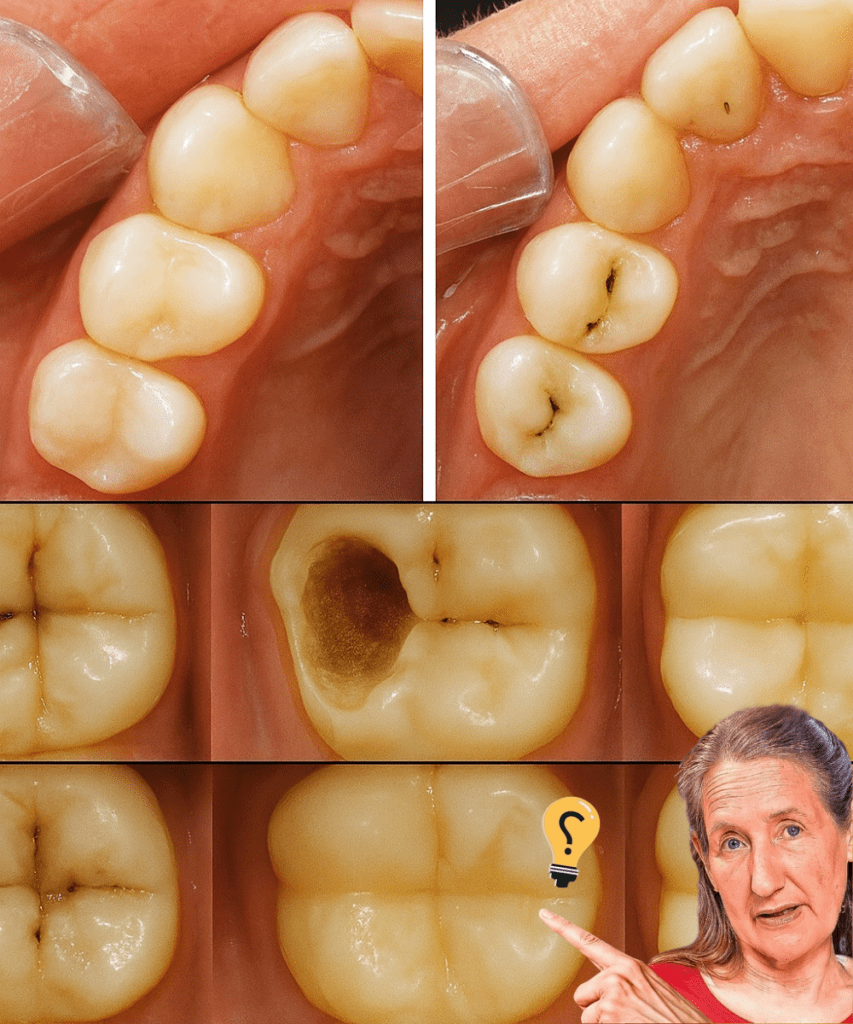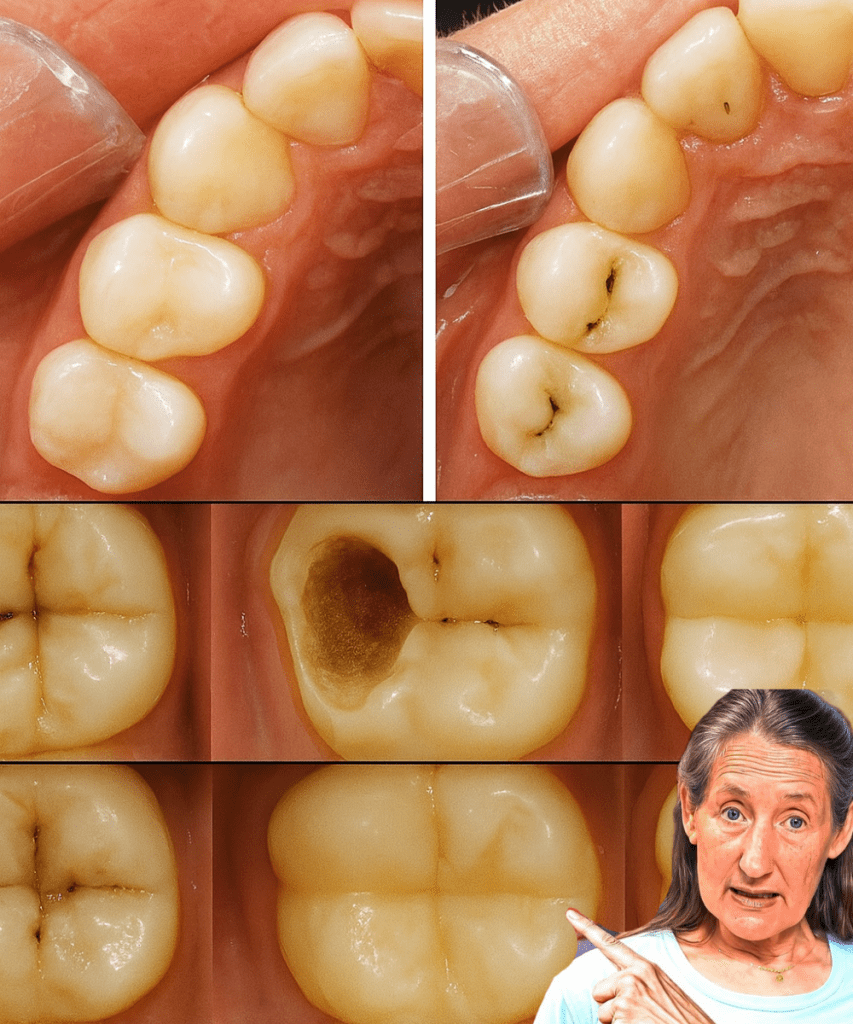Are you dreading the next dental visit, worried about cavities, or just tired of dealing with tooth sensitivity? You’re not alone. Cavities can sneak up, turning a confident smile into a source of stress. But here’s the good news: nature offers simple, effective ways to support your oral health and keep your teeth strong—without relying on harsh chemicals or expensive treatments.
By making a few mindful changes to your diet and daily habits, you can protect your smile and reduce the risk of decay. These natural strategies aren’t a replacement for professional dental care, but they can work wonders in preventing cavities and boosting your confidence. Ready to give your teeth the love they deserve? Let’s dive into practical, everyday habits to keep your smile shining bright.

Why Cavities Happen and How to Stop Them
Cavities form when harmful bacteria in your mouth feed on sugars and starches, producing acids that erode tooth enamel. Over time, this creates weak spots or holes in your teeth. The good news? Your body has a natural ability to remineralize enamel—rebuilding those weak spots with the right nutrients and care. By focusing on a nutrient-rich diet, smart food choices, and consistent habits, you can strengthen your teeth and keep cavities at bay.
Eat Tooth-Friendly Foods for Stronger Enamel 🥦
Your diet plays a massive role in oral health. Foods rich in key minerals like calcium, phosphorus, and magnesium help your body rebuild enamel and keep teeth resilient. Here’s how to fuel your smile with tooth-friendly foods.
Top Foods for Healthy Teeth
- Leafy greens: Spinach, kale, and bok choy are packed with calcium and vitamins that support enamel strength.
- Healthy fats: Coconut oil and olive oil contain anti-inflammatory properties and can help reduce harmful bacteria in the mouth.
- Calcium-rich sources: Organic dairy (like yogurt or cheese) or plant-based options (like almond milk or tofu) provide the building blocks for strong teeth.
- Fish and shellfish: Rich in phosphorus and omega-3s, these foods support enamel remineralization and gum health.
How to Incorporate Them
- Add a handful of spinach to your morning smoothie.
- Use coconut oil for cooking or as a base for salad dressings.
- Snack on plain yogurt with fresh berries for a calcium-packed treat.
- Include salmon or sardines in your weekly meals for a phosphorus boost.
Pro Tip: Chew crunchy vegetables like carrots or celery after meals. They naturally clean teeth and stimulate saliva production, which helps neutralize acids. ✅
Reduce Phytic Acid to Boost Mineral Absorption ⚖️
Phytic acid, found in grains, legumes, nuts, and seeds, can bind to essential minerals like calcium and magnesium, preventing your body from absorbing them. While these foods are healthy, eating them in excess or without preparation can weaken your teeth over time.
How to Minimize Phytic Acid
- Soak or sprout: Soak nuts, seeds, and legumes overnight before cooking or eating to reduce phytic acid levels.
- Limit processed grains: Swap white bread or sugary cereals for whole, minimally processed grains like quinoa or brown rice.
- Balance is key: Enjoy these foods in moderation alongside mineral-rich options to support enamel health.
Practical Swaps
- Replace sugary granola bars with sprouted almonds or pumpkin seeds.
- Choose oatmeal soaked overnight instead of instant varieties.
- Pair beans with leafy greens to balance out phytic acid’s effects.
By preparing these foods properly, you’ll help your body absorb the minerals it needs to keep your teeth strong.
Cut Back on Sugary and Processed Foods 🚫
Sugar is the ultimate enemy of healthy teeth. It feeds harmful bacteria in your mouth, leading to acid production that erodes enamel. Processed foods, even those without obvious sugar, often contain hidden acids or preservatives that wear down teeth over time.
Foods to Avoid
- Sugary snacks and drinks: Candy, soda, and fruit juices are major culprits.
- Processed carbs: White bread, chips, and crackers break down into sugars that bacteria love.
- Acidic beverages: Energy drinks and citrus-heavy juices can weaken enamel.
Smarter Alternatives
- Whole fruits: Opt for fresh apples or berries instead of juice or dried fruit, which can stick to teeth.
- Crunchy veggies: Carrots, cucumbers, or celery act as natural toothbrushes, scrubbing away plaque.
- Water or herbal tea: These hydrate your mouth and rinse away food particles without adding sugar.
Pro Tip: Rinse your mouth with water after eating sugary or acidic foods to neutralize acids and wash away debris. Wait 30 minutes before brushing to avoid damaging softened enamel.
Oil Pulling: A Natural Way to Cleanse Your Mouth 🥥
Oil pulling is an ancient practice that involves swishing oil (like coconut or sesame oil) in your mouth to remove bacteria and promote oral health. It’s a simple, natural way to reduce plaque and support healthier gums.
How to Do Oil Pulling
- Take 1 tablespoon of coconut oil (or sesame oil) and swish it in your mouth for 10–15 minutes.
- Move the oil around, pulling it through your teeth, but don’t swallow.
- Spit the oil into a trash can (not the sink, as it can clog pipes).
- Rinse your mouth with water and brush as usual.
Do this once daily, preferably in the morning, for a cleaner mouth and fresher breath. Studies suggest oil pulling can reduce harmful bacteria, making it a great addition to your cavity-prevention routine.
Don’t Skip the Dentist 🦷
Even with the best natural habits, regular dental checkups are non-negotiable. Dentists can spot early signs of cavities, offer professional cleanings, and provide personalized advice for your oral health. If you’re experiencing pain, sensitivity, or visible changes in your teeth, book an appointment immediately—early intervention can save you from more invasive treatments.
Why Dental Visits Matter
- Early detection: Cavities caught early are easier to treat with minimally invasive methods.
- Professional cleanings: Remove plaque and tartar that brushing can’t.
- Tailored advice: Your dentist can recommend specific strategies based on your unique needs.
Aim for a checkup every 6 months or as recommended by your dentist. It’s the ultimate backup plan for a healthy smile.

Bonus Tips for a Cavity-Free Smile ✨
Want to go the extra mile? Here are a few more natural strategies to keep your teeth in top shape:
- Stay hydrated: Drinking water throughout the day washes away food particles and keeps your mouth moist, reducing bacterial growth.
- Chew sugar-free gum: Look for gum with xylitol, a natural sweetener that inhibits bacterial growth.
- Use a straw: When drinking acidic beverages like lemon water, use a straw to minimize contact with your teeth.
- Brush and floss properly: Brush twice daily with a soft-bristled toothbrush and fluoride toothpaste, and floss nightly to remove trapped food.
Final Thoughts: Build a Stronger Smile Naturally
Preventing cavities doesn’t have to be complicated or costly. By focusing on nutrient-rich foods, reducing harmful sugars, and incorporating habits like oil pulling, you can naturally support your teeth and gums. Pair these strategies with regular dental visits, and you’ll be well on your way to a confident, cavity-free smile.
Start small—swap one sugary snack for a crunchy veggie, try oil pulling a few times a week, or add more leafy greens to your plate. Your teeth will thank you, and you’ll feel great knowing you’re taking charge of your oral health the natural way. Show your smile some love today—it’s worth it! 😁









